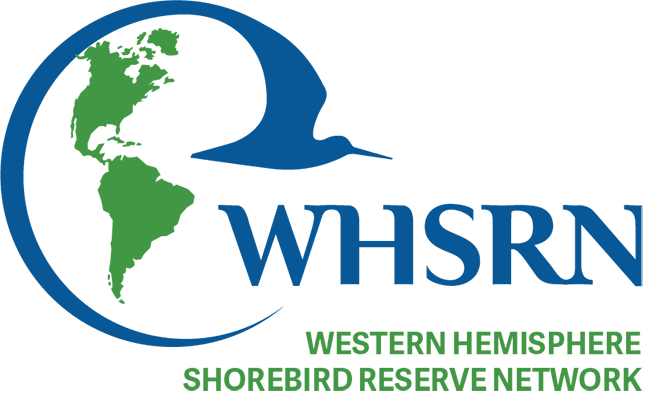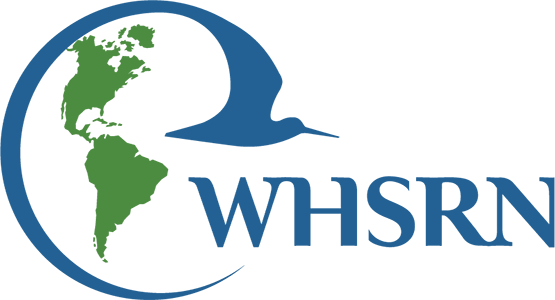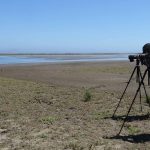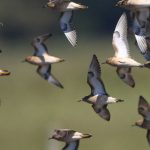Delaware Bay residents and visitors have been rescuing stranded horseshoe crabs for decades. In 2004, restrictions were placed on key spawning beaches in New Jersey so shorebirds could feed on the crabs’ eggs undisturbed. But without beach access, community members couldn’t rescue stranded horseshoe crabs, and they weren’t willing to continue watching them die on beaches. In 2013, reTURN the Favor was established to address these concerns. A state-sanctioned, multi-partner program, it organizes volunteers to rescue overturned or impinged horseshoe crabs on New Jersey’s Delaware Bay beaches, without disturbing shorebirds.
During the five years of the program, reTURN the Favor has shown great success at two of its key goals: rescuing stranded horseshoe crabs and building a constituency ready to take action for both horseshoe crabs and shorebirds. The program has grown exponentially in all aspects, from the number of hours volunteered and walks led to the number of horseshoe crabs rescued. Over the past five years, volunteers have contributed 7,017 hours leading or participating in reTURN the Favor walks, rescuing 275,649 horseshoe crabs on 22 New Jersey beaches.
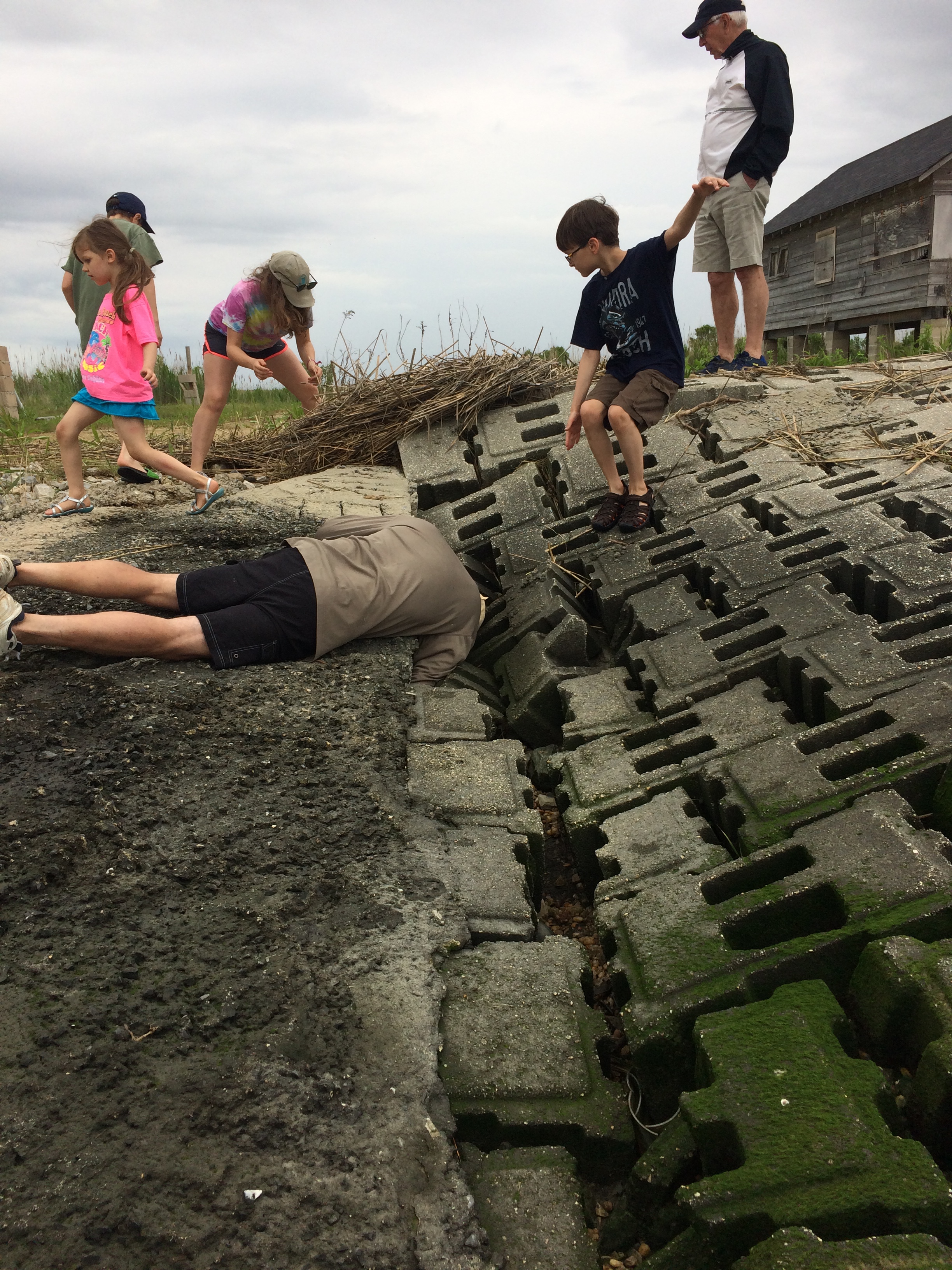
reTURN the Favor volunteers going the extra mile to rescue stranded horseshoe crabs. Photo: Laura Chamberlin.
One of the key goals of reTURN the Favor was to reduce horseshoe crab mortality. Volunteers are collecting data to identify areas besides beaches where horseshoe crabs are being stranded, such as bulkheads, rip-rap, rubble, and other structures. This detailed data reporting has allowed program coordinators to design targeted restoration efforts at four beaches. Through small-scale projects to remove rubble and marine debris, fill gaps in marine structures, and repair damaged bulkheads, these volunteer-based projects will further reduce the number of horseshoe crabs that are stranded.
The past five years have shown that as more volunteers are recruited and trained, the number of walks conducted and the number of horseshoe crabs rescued increase as well. The program’s strong communication system even enables volunteers to respond in emergency situations. This was put into action in May 2017 when full moon high tides, extraordinary numbers of spawning crabs, and storm surge combined to strand thousands of horseshoe crabs in the marsh, overwash areas, and rubble. During this five day period, volunteers raced to save as many crabs as possible. They conducted 107 walks and rescued 31,064 crabs.
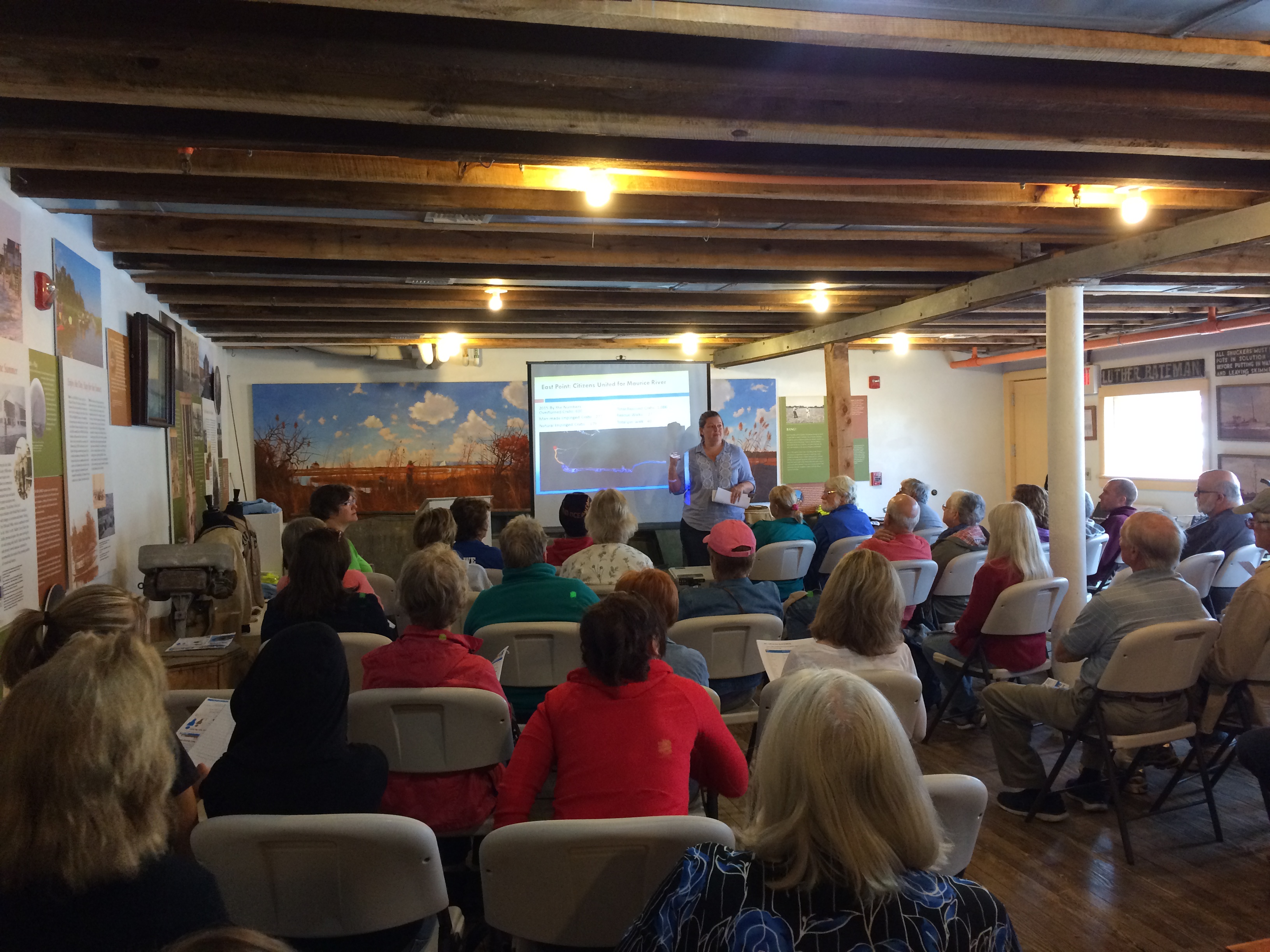
reTURN the Favor volunteer training. Photo: Laura Chamberlin.
Strong communication among volunteers and coordinators has not only empowered quick response to emergencies. It has resolved gaps in beach coverage, increased opportunities to share knowledge, and helped new people feel more comfortable rescuing horseshoe crabs. Other tools like the program’s Facebook group and an annual volunteer party have further strengthened this community.
Returning volunteers also play a critical role in expanding the volunteer base. They share stories with family and friends and bring new people out on their rescue walks. In an optional online survey in 2017, 70% of volunteers said they brought new people on their walks, and 86% stated that they enjoyed sharing their experiences with friends and family. This peer-to-peer learning and word-of-mouth interaction is one of the most effective types of community engagement.
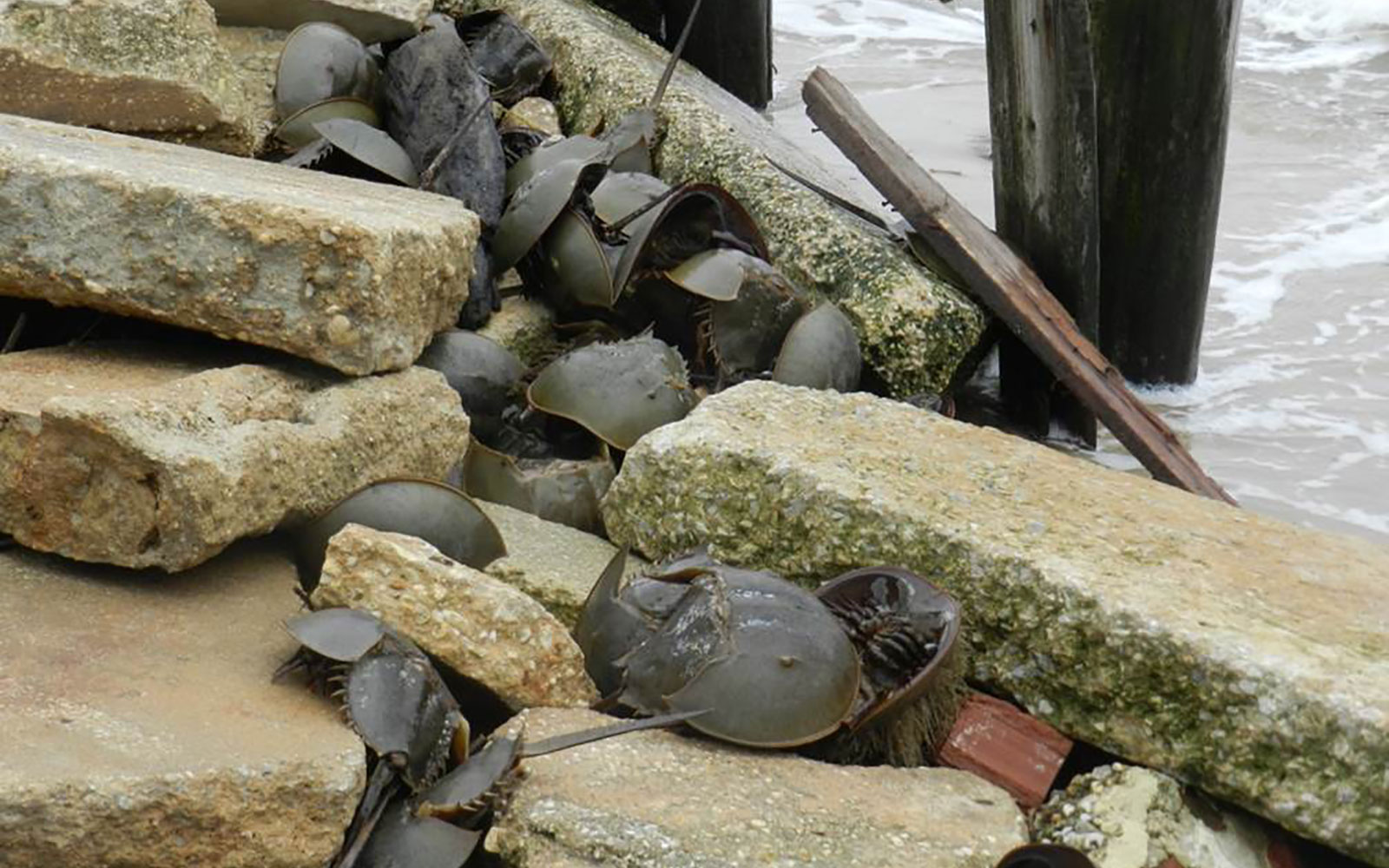
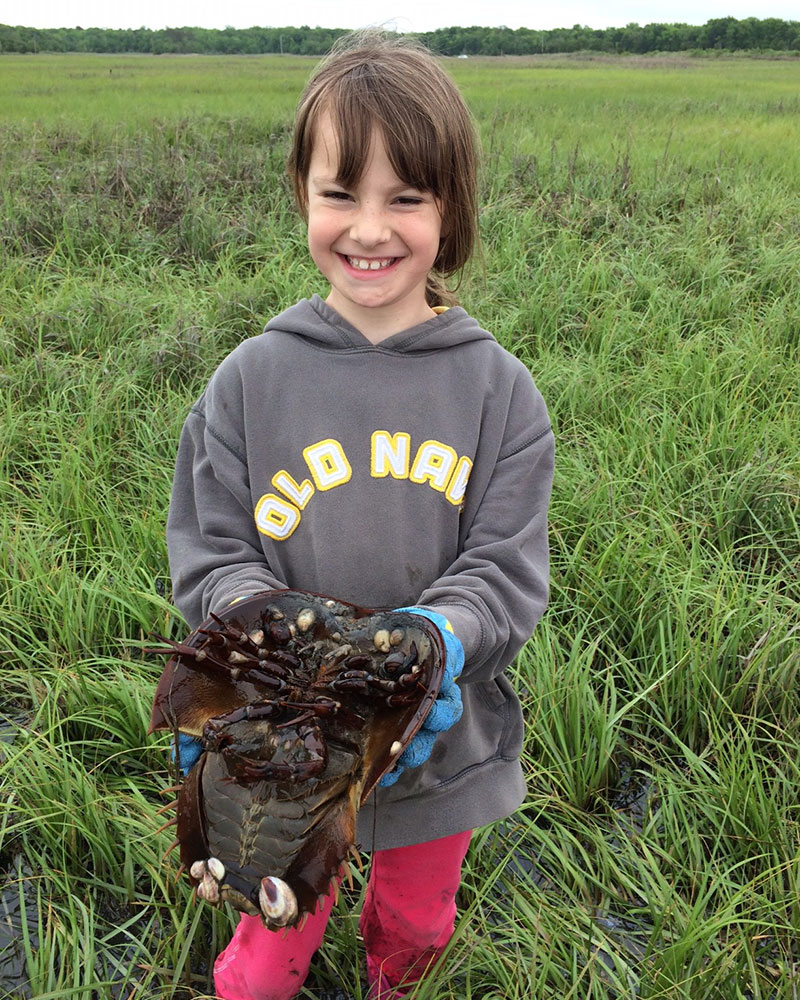
Left: Stranded horseshoe crabs at Fortescue Beach. Photo: Ron Smith. Right: A young reTURN the Favor volunteer helping rescue horseshoe crabs. Photo: Laura Chamberlin.
The hands-on experience of participating in reTURN the Favor is creating a constituency committed to protecting shorebirds and horseshoe crabs. In the online survey, 75% of volunteers responded that they were now more likely to take action beyond rescuing stranded crabs.
The program continues to grow — and thanks to reTURN the Favor, Delaware Bay now has a committed community of volunteers that can be called upon to take meaningful action for horseshoe crabs and shorebirds.
The WHSRN Executive Office serves on the Steering Committee of reTURN the Favor with The Wetlands Institute, Conserve Wildlife Foundation of New Jersey, and New Jersey Division of Fish and Wildlife. Other participating partners include Citizens United for the Maurice River, Friends of Cape May National Wildlife Refuge, The Nature Conservancy- New Jersey, New Jersey Audubon, and Rutgers University.
For more information contact: Laura Chamberlin, lchamberlin@manomet.org or Lisa Ferguson, info@returnthefavornj.org


